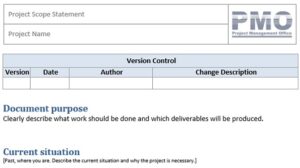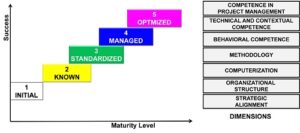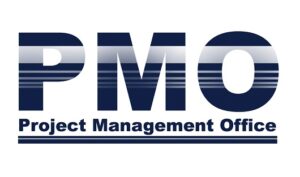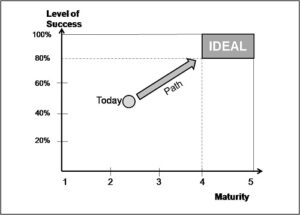“The Role of a Project Manager: Skills and Responsibilities” explores the critical functions project managers play in achieving project success. It highlights key skills such as communication, leadership, and problem-solving, alongside core responsibilities like planning, resource allocation, risk management, and team coordination. The article provides insights into how project managers bridge strategy and execution, ensuring goals are met efficiently and effectively.
Introduction to Project Management
In today’s fast-paced world, project management has become an essential skill across various industries. Whether it’s launching a new product, constructing a building, or developing software, effective project management ensures success.
A project manager is at the heart of this process. They are responsible for planning, executing, and closing projects, all while maintaining scope, timeline, and budget. In essence, they are the orchestrators who ensure that every project component works in harmony.
Project management is crucial in industries like construction, technology, and healthcare, where delivering results on time and within budget can determine an organization’s success. As industries continue to evolve, skilled project managers are more important than ever in steering projects to successful completion.
Understanding the Role of a Project Manager
A project manager serves as the cornerstone of any successful project, overseeing its progress from start to finish. Their role is multifaceted and crucial to achieving project goals.
- Project manager as a team leader: At the core, a project manager acts as a leader, guiding the team towards achieving set objectives. They motivate and inspire team members, fostering a collaborative environment that encourages innovation and high performance.
- Coordinator between stakeholders: Project managers bridge the gap between various stakeholders, ensuring seamless communication and alignment of goals. They facilitate discussions, manage expectations, and keep everyone informed, ensuring that the project stays on track.
- Ensuring project objectives are met: One of the primary responsibilities of a project manager is to ensure that project objectives are met. This involves meticulous planning, continuous monitoring, and making necessary adjustments to navigate challenges and deliver desired outcomes.
By excelling in these roles, a project manager not only drives the team towards success but also ensures that the project aligns with broader business goals.
Key Responsibilities
Planning and Defining Project Scope
A project manager begins by outlining the project’s objectives and deliverables. This involves creating a detailed project plan that defines the scope. For instance, when launching a new software, they specify features and timelines to ensure all stakeholders agree on the end goals.
Time Management and Scheduling
Effective time management is crucial. Project managers develop timelines to keep tasks on track. Consider a construction project where a delay in one phase can impact the entire schedule. By using tools like Gantt charts, they allocate time for each task to ensure timely completion.
Budget Management
Managing the budget is another vital responsibility. Project managers allocate resources wisely to prevent overspending. In a marketing campaign, for example, they balance costs between advertising and promotional events to maximize impact within budget constraints.
Risk Assessment and Mitigation
Anticipating potential risks and developing mitigation strategies is key. For a product launch, a project manager might identify supply chain risks and create contingency plans to ensure smooth delivery.
Quality Control
Ensuring the project meets quality standards is essential. Project managers implement quality checks throughout the project lifecycle. In software development, this could involve regular testing phases to ensure the final product is bug-free and user-friendly.
Essential Skills for Success
Leadership and Team Management
Project managers must lead diverse teams towards common goals. This involves motivating and guiding team members, ensuring productivity and harmony. Successful leadership fosters a collaborative environment where every team member contributes effectively.
Effective Communication
Clear and concise communication is vital. Project managers must convey ideas and updates to both team members and stakeholders. This ensures everyone is informed and aligned on the project’s progress and objectives.
Critical Thinking and Problem Solving
Projects often face unexpected challenges. The ability to analyze situations, think critically, and devise creative solutions is crucial. Project managers who excel in problem solving keep projects on track and minimize disruptions.
Adaptability and Flexibility
The dynamic nature of projects requires adaptability. Project managers must adjust plans and strategies in response to changing circumstances, ensuring the project continues to meet its objectives.
Technical Proficiency
Understanding the technical aspects of a project is beneficial. Project managers should possess sufficient technical knowledge to make informed decisions and communicate effectively with technical team members.
Impact of an Effective Project Manager
An effective project manager can significantly influence the success rates of projects across various industries. Studies indicate that projects led by skilled project managers are more likely to be completed on time and within budget.
| Metric | Effectiveness with Skilled PM | Without Skilled PM |
|---|---|---|
| Project Success Rate | 76% | 54% |
| Cost Savings | 18% reduction | 5% increase |
| Efficiency Improvements | 20% increase | 4% decrease |
The table above highlights the dramatic differences in success rates and cost efficiencies when projects are guided by competent project managers. A notable 76% success rate underscores the role’s importance in achieving project goals. Additionally, managing budgets effectively can lead to an 18% reduction in costs, demonstrating how sound project management contributes to financial savings.
These statistics emphasize the substantial impact a proficient project manager can have, not only on the completion rates but also on the overall efficiency and cost-effectiveness of projects. In today’s competitive business landscape, the value of a skilled project manager cannot be underestimated.
FAQs About Project Manager
What qualifications do you need to become a project manager?
While specific qualifications can vary by industry, most project managers benefit from a bachelor’s degree in business, engineering, or a related field. Certifications like PMP (Project Management Professional) or PRINCE2 also enhance credibility and job prospects.
How does a project manager handle conflicts?
A project manager handles conflicts by employing effective communication and negotiation skills. They facilitate open dialogue among team members, ensuring all viewpoints are considered. This approach helps in reaching a consensus and maintaining a harmonious work environment.
Can project management be applied in small businesses?
Absolutely, project management is crucial in small businesses. It helps streamline processes, allocate resources efficiently, and meet business goals. By adopting project management practices, small businesses can enhance productivity and manage growth effectively.
As you can see, the role of a project manager is versatile and essential across different sectors, offering valuable skills that contribute to the success of both large and small-scale projects.
Conclusion
In summary, the role of a project manager is pivotal in steering projects to success across various industries. They serve as team leaders, coordinators, and problem solvers, ensuring that project objectives are met on time and within budget. The responsibilities they bear, from planning to risk management, underscore their importance in any organization’s framework.
Developing project management skills can open doors to numerous opportunities and significantly impact personal and professional growth. Whether you are aiming to advance in your current role or considering a career shift, embracing these skills can lead to improved efficiency and success.
Consider investing in your project management capabilities, as they are invaluable assets in today’s dynamic business landscape. By doing so, you position yourself not just as a participant but as a leader in driving innovation and achieving goals.





